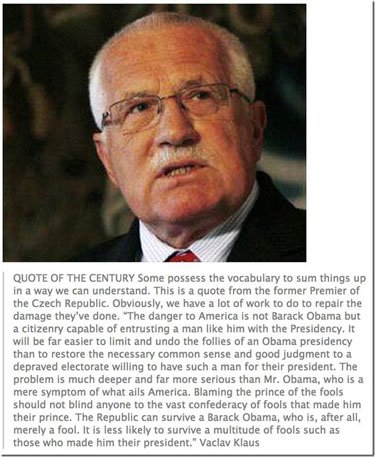Category Archive 'Barack Obama'
11 May 2015

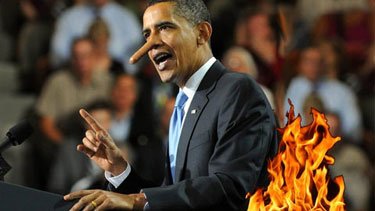
Investigative journalist Seymour Hersch has a major exposé in the London Review of Books revealing the astonishing and extraordinarily scale of Barack Obama’s lies regarding the killing of Osama bin Laden. Hersch is a hard-core radical anti-American leftist but, in this case, I expect he’s telling the truth.
And the truth seems to be:
1. Osama bin Laden was being held in Abottabad as a prisoner of ISI, the Pakistani Intelligence Service, which was using him as a hostage to keep al Qaeda from attacking Pakistan. The Saudis were funding his detention.
2. There was no courier trail. A former Pakistani intelligence spilled the beans to the CIA in order to get the offered reward.
3. The Pakistanis knew we were coming, and reluctantly agreed to let the US conduct the hit under threat of loss of US aid.
4. There was no heroism and no firefight. Osama had no guards. He was a helpless invalid and a prisoner and the Seals were under orders simply to kill him out of hand.
5. Osama was not in touch with, or directing, al Qaeda operations, and there was no treasure trove of intelligence.
6. Barack Obama then completely broke his word to the Pakistanis. There was supposed to be a delayed announcement that Osama had been killed by a drone strike on the Afghan side of the Hindu Kush, no mention of the house in Abottabad, and no clues whatsoever of Pakistani involvement or cooperation. By exploiting the killing of Osama for personal prestige immediately and abandoning the agreed-upon “drone strike” story, Obama double-crossed Pakinstan’s Intelligence Service, leading to a four-year-long rupture in relations.
7. There was never any burial at sea or Islamic service. Osama was literally shot to pieces, and the Seals happily tossed body parts out of the helicopter while flying home over the Hindu Kush.
Wow!
20 Apr 2015

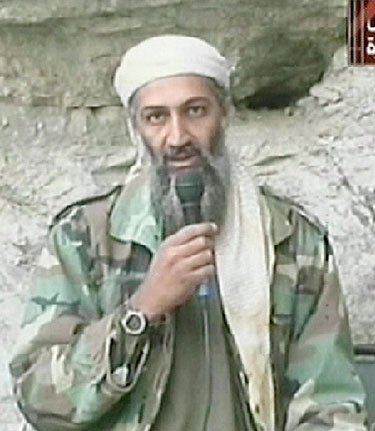
David Samuels, in an important essay, argues that Osama bin Laden out-strategized a series of dimbulb American administrations, astutely predicting precisely how they would respond.
judging from his last known private letter, dated April 25, 2011, Bin Laden died a happy man. “What we are witnessing these days of consecutive revolutions is a great and glorious event,†he mused, after watching the fall of the secular, Western-backed regimes in Tunisia and Egypt, which he watched on CNN, before the daring Navy SEAL raid on his compound in Abbottabad, Pakistan. “[T]hanks to Allah things are strongly heading toward the exit of Muslims from being under the control of America.â€
Even at this late date, it seems difficult for American policymakers to grasp exactly how Bin Laden’s mastery of the inherently paradoxical logic of warfare—a logic very different than the linear cause-and-effect style of reasoning that governs normal life and electoral politics alike—allowed a man without a country, heavy weapons, or even broadband Internet access to reshape the world to his advantage. The clarity of Bin Laden’s strategic insight, which now seems obvious, also suggests that the dynamic that he deliberately set in motion is still unfolding, in ways that he foresaw before his death—ways that continue to roil the Middle East and will continue to pose a threat to the safety of Americans at home. …
Bin Laden was never shy about explaining what he was doing and why. His public statements about his strategic logic and goals in targeting “the far enemy†remained remarkably consistent, from his first fatwa against America until the last letter he wrote before his death. In his 1996 “Declaration of War Against the Americans Occupying the Land of the Two Holy Places,†published soon after the Khobar Towers bombings in Saudi Arabia, he explained that “it is essential to hit the main enemy who divided the Ummahâ€â€”the Muslim world—“into small and little countries and pushed it, for the last few decades, into a state of confusion.â€
America’s response to an attack would be to get sucked into a war, he predicted—and when the going got tough, the United States would cut and run. Responding to then-U.S. Defense Sec. William Perry, who had called the Khobar bombers cowards and had sworn not to give in, Bin Laden asked, “Where was this false courage of yours when the explosion in Beirut took place on 1983 AD (1403 A.H). You were turned into scattered pits and pieces at that time; 241 Marine soldiers were killed.†…
In public and private following the Sept. 11 attacks, he returned to the same themes, over and over again, in at least three-quarters of his public statements and in private letters to other jihadists that were seized from his compound in Abbotabad and later made public. “The goal is to weaken America until it can no longer interfere in Muslims affairs,†he explained, in a letter whose contents were entirely typical of his communications. “Once the American enemy has been defeated, our next step would be targeting the region’s leaders who had been the pillars of support for that American hegemony.â€
It is proof of Bin Laden’s mastery of the unexpected logic that animates strategic thought, and of the glaring inability of America’s political leaders to think strategically, that not one but two American presidents have faithfully acted their roles in his geo-political script: George W. Bush, the hawk, with his open-ended and heavy-handed occupation of Iraq; and Barack Obama, the dove, with his precipitous and wholesale withdrawal of American military forces and influence from the Middle East. Both men—and their many advisers—should have known better.
Read the whole thing. It’s depressing reading and hard to argue with.
Hat tip to Claire Berlinski.
03 Apr 2015

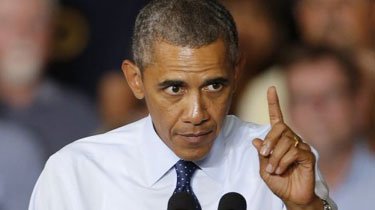
Jonathan V. Last notes just how much of the politics of members of the contemporary community of fashion consists of nothing more than signals affirming loyalty and group membership.
Why do reporters ask politicians what they think about evolution? Practically speaking, no one really cares what a senator or a congressman-or even a president-thinks about evolution. But what a politician says about evolution is a handy signal to certain types of voters telling them what they’re supposed to think. So if you’re a nice, well-educated cog in the Goldman Sachs machine who thinks that, generally speaking, public-sector unions are harmful, that the federal government is operating in a suboptimal manner, and that the mullahs of Iran probably shouldn’t be allowed to have nuclear weapons, you might consider voting for someone like that tough, can-do governor from Wisconsin.
But then someone asks the governor whether or not he “believes in evolution” and he doesn’t answer by jumping up and down chanting and “Darwin! Darwin! Darwin!” And suddenly you understand: This guy isn’t really like you. Better to let Iran have nukes.
You got the signal loud and clear.
President Obama has always been skilled at sending out very precise, targeted signals, whether it’s to mainstream swing voters or to his liberal base. But the group Obama works hardest at signaling to is the young, Millennial hipsters who were so vital to his 2008 victory over Hillary Clinton.
As a substantive matter, Obama’s presidency has been terrible for these people. High unemployment numbers for recent graduates. No bending of the curve on college tuition prices. An entitlement system that gets less solvent by the day. And a new healthcare regime that’s an explicit transfer of wealth from younger, healthier workers to older folks and the unemployed.
Yet Obama has made sure to signal that, despite everything, he’s really on their side. We see these signals in the big show he makes each year of filling out his NCAA bracket. (It’s not like there’s a war on or anything.) We see it in his choice of bffs. And above all, we see it in his TV habits, where Obama goes out of his way to let it be known that he’s a huge fan of HBO and Millennial darling shows such as Game of Thrones and True Detective.
Read the whole thing.
17 Mar 2015


Obama’s body servant, Reggie Love, carries the papers.
Business Insider serves up today juicy details from Reggie Love’s Power Forward: My Presidential Education, a memoir of the 21-year-old Duke University sports star’s experience of working as Barack Obama’s personal body servant.
Love got to fetch and carry for his Obamaness, buy Obama’s clothes, serve Obama’s meals, babysit his children, and even shoot basketball hoops with the great man.
When Love made mistakes, we learn, the wrath of Obama could be terrible.
The night before Love’s first official trip as Obama’s “chief of stuff” he made a trip to a local supermarket to buy black and silver Sharpie’s, black pilot G2 Gel Roller pens, Trident chewing gum, and trail mix. Mulling over the plethora of trail mix options Love recalls, “Salted or dry roasted? Sweet or spicy? With or without dried fruit or candy? I realized I hadn’t a clue what the man (Senator Obama) would like. I also had an accompanying thought: how much could it possibly matter? He’d be grateful regardless, right?” Turns out, the trail mix selection did matter to Obama. Hours later Love flew with the senator on a commercial flight from D.C. to LaGuardia. While on the flight Love offered Obama the bag of trail mix. “The senator opened the bag of trail mix I’d bought and proceeded to pick out every M&M, holding them all in his palm like pieces of candy-coated toxic waste. ‘I’m not going to eat these,’ he said while pushing his hand in my general direction. ‘Do you want them?’ he asked, wrinkling his nose. ‘No thank you, sir,’ I answered, then made the first of what would be thousands of notes to self: No candy with the trail mix.”

09 Feb 2015

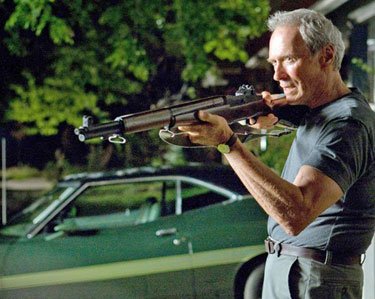
Walt Kowalski had an M1 Garand in “Gran Torino” (2008), but he must have somehow managed to bring his home from Korea personally.
The Garand rifle was the primary US long-arm used in WWII, making it a favorite of collectors. Garands are also favored for high power rifle match shooting. High demand makes Garands fairly expensive.
You have to jump through the hoop of belonging to certain gun clubs and participating in certain kinds of target match competitions before you can buy a Garand from the Civilian Marksmanship Program, and a decent one will still cost you over a thousand dollars.
Mr. Mosin Crate offers some Garands for sale from time to time. He just posted a new batch of mostly post-Korean-War 1950s examples which looked generally well-used, and they were all going for $800+.
Meanwhile South Korea is sitting on nearly a million Garands and M1 carbines supplied by the American taxpayer as military aid during the 1950s and 1960s, and Century Arms in Vermont is eager to import them to sell to American target shooters and collectors, but Barack Obama in August of 2013 issued one of his famous executive orders banning the importation of surplus military weapons by private companies.
The White House announced:
Today, the Administration is announcing a new policy of denying requests to bring military-grade firearms back into the United States to private entities, with only a few exceptions such as for museums. This new policy will help keep military-grade firearms off our streets.â€
I seriously doubt that a Garand has ever actually been used in the commission of crime anytime in several decades.
Last summer, Century Arms laid off 41 employees as a direct result of the Korean deal falling through.
Let’s hope that the Republican Congress will do something about all this.
04 Feb 2015


Megan McArdle notes that Barack Obama’s Free Community College scheme is really just one more example of the pseudo-intelligentsia’s typical attempt to make the world better by making everybody more like themselves.
I would argue instead that what’s elitist is our current fixation on college. It starts from the supposition that being good at school is some sort of great personal virtue, so that any suggestion that many people aren’t good at school must mean that those people are not equal and valuable members of society. And that supposition is triple-distilled balderdash.
My grandparents had perhaps ten adult books in their house, most of which were either Bibles or biographies of presidents. I don’t think there’s anything to be ashamed of in not regarding reading as great recreation. Bookishness has added greatly to society. So has the ability to run a business well, which my grandfather did for many years, employing dozens, maybe hundreds, of people over his lifetime. So has community service, which both my parents did with great distinction, and being kind and decent and generous. I don’t need to hide the fact that neither of my grandparents much cared for books or school, because I don’t think that made them some sort of lesser class of person. Pretending that everyone has the potential to be like the tiny class of educated people who run policy in this country is not egalitarianism; it is the secret snobbery of a mandarin class who really do think that being good at school made them more worthy and important than everyone else. …
Higher education is becoming the ginseng of the policy world: a sort of all-purpose snake oil for solving any problem you’d care to name, as long as we consume enough of it. Education is a very good thing, but it is not the only good thing. An indiscriminate focus on pushing more people into the system is no cure for society’s ills–and indeed, often functions as a substitute for helping the people who are struggling in the current system.
What if people in the policy elite stopped assuming that the ideal was to make everyone more like them, and started thinking about making society more hospitable to those who aren’t? My grandfather graduated into a world where a man with a high-school diploma could reasonably hope to own his own business, or become someone else’s highly valued employee, a successful pillar of a supportive community. His grandchildren graduated into a world where a college diploma was almost the bare necessity to get any kind of a decent job. Why aren’t we at least asking ourselves if there’s something we can do to create more opportunity for people without diplomas, instead of asking how many more years we can keep everyone in school? Why do all of our proposed solutions essentially ratify the structure that excludes so many people, instead of questioning it?
I have some ideas about what those policies might look like: broad deregulation, especially at the state and local level, to ease things for business creators and make it easier to get various sorts of jobs that are currently protected by licensing requirements; more co-op and apprenticeship programs; wage subsidies for entry-level workers, and perhaps a broad system of government internships that could help people gain experience outside of the classroom. I’m sure that there are many more I haven’t named. But we won’t find them as long as the only politically interesting solution is ever more years in school.
Read the whole thing.
24 Jan 2015

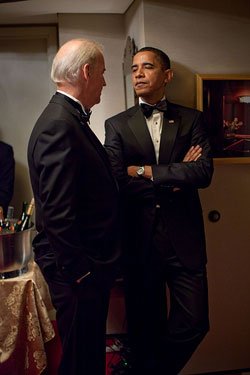
Michael Walsh finds the arrogance of Barack Obama’s SOTU address perfectly consistent with the personality of the man who wrote an autobiography after graduating from law school, and who concluded that his fortuitous elevation to the US Senate demonstrated his qualification for the presidency.
It’s easy to despise Barack Hussein Obama, perhaps the least qualified man ever to accede to the Oval Office. The empty resume, the imaginary biographies, the laziness, the arrogance, the profligacy with the public treasury, the weakness, the cowardice and the cringing servility when dealing with America’s enemies abroad: his six years as president of the United States — a presidency we will all look back upon someday with wonder, shame and national embarrassment — have been as disastrous and harmful as some of us predicted at the time. The man is a disgrace.
And yet…
There is one thing, and one thing only, to like about him. And that is his complete and utter contempt for his domestic political enemies and the high-handedness with which he treats them. And why shouldn’t he? As the beneficiary of the Being There presidency, he must retire to the family quarters of the White House each night laughing his head off at the electorate and yet at the same time being utterly convinced of his own rightness. After all, he won, didn’t he? Twice! If he’s so dumb… how come he’s president?
As Yuval Levin noted in a post over at NRO after the State of the Union speech, Obama acts as if the electorate had not just delivered his party a crushing rebuke in an election in which he said quite clearly that while he may not have been on the ballot, his policies most certainly were. (Not that he cares about what happens to the Democrats after he retires to a live of Secret Service-protected, taxpayer-supported, think-tank enriched utter indolence.) But he appears to be living in a fantasy land of his own device, one in which he, Barry, remains beloved by the masses who didn’t bother to show up at the polls.
The most striking thing about President Obama’s State of the Union address was how thoroughly and consciously it was disconnected from the political moment. The president addressed the Congress he will face for the remainder of his term, which is the most Republican Congress since 1929, but he didn’t really speak to that Congress or to the electorate that sent it. He made no mention of the recent congressional election and offered no reason to think its results would change his approach to his own job.
Instead, he began by pointing to economic gains that suggest that, six years after the end of the last recession, we may finally see the sort of growth that could merit being called a recovery. He then proceeded to propose a set of policies — giving the federal government far more power over community colleges, cutting taxes for families with two working parents but not for those with a stay-at-home parent, levying new mandates on employers — designed to draw contrasts with Republicans rather than to close distances or to be enacted. Then he painted a rosy picture of international affairs on an Earth-like planet that plainly is not this one. And finally he hearkened back to the promise of his 2004 Democratic Convention speech, which he knows everyone recalls fondly on cold nights, and said it wasn’t too late for Americans to prove ourselves worthy of that speech and its maker, if only we would behave a little less like congressional Republicans.
In short, so far, so nuts.
Read the whole thing.
Your are browsing
the Archives of Never Yet Melted in the 'Barack Obama' Category.
/div>

Feeds
|



